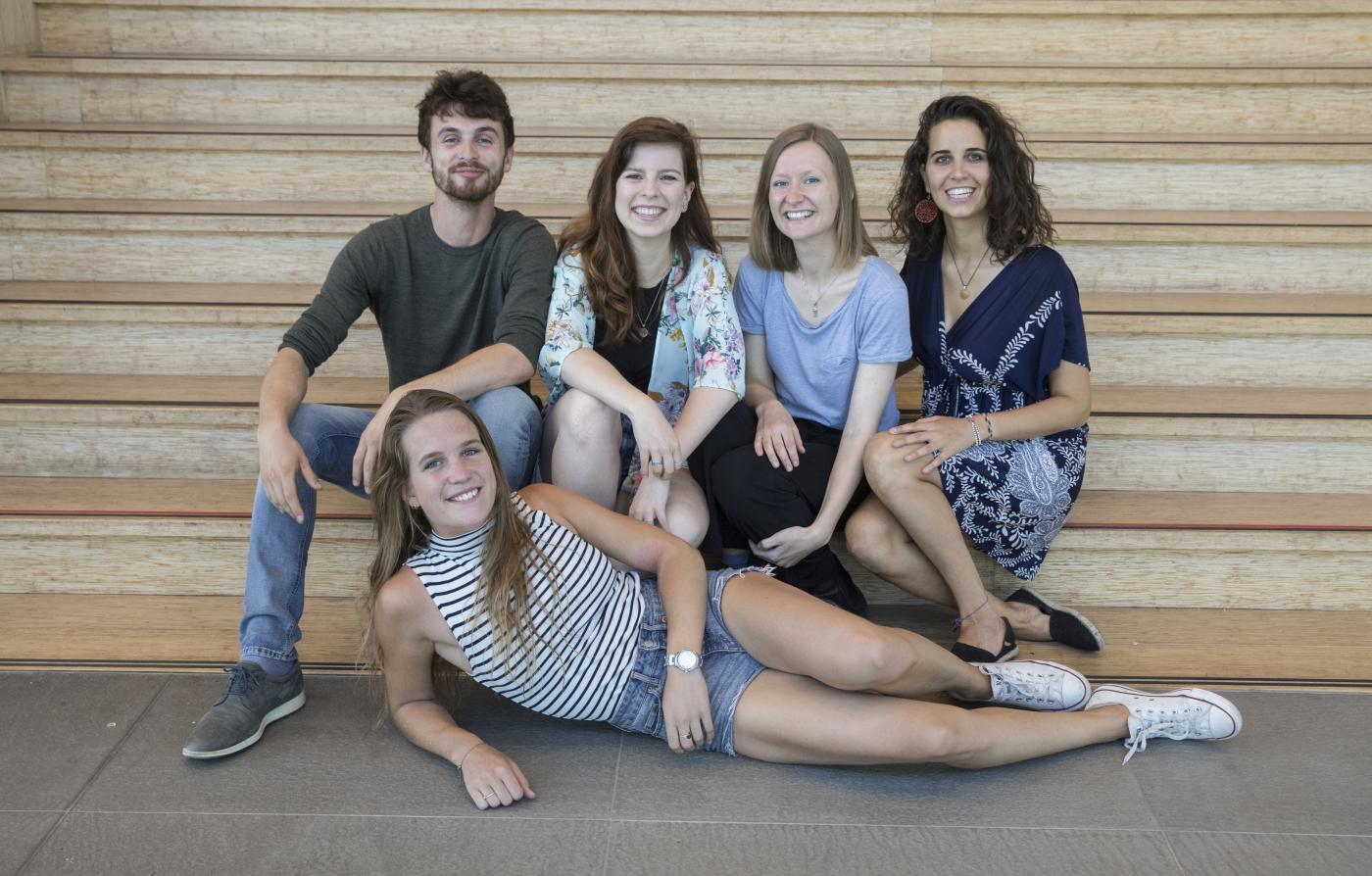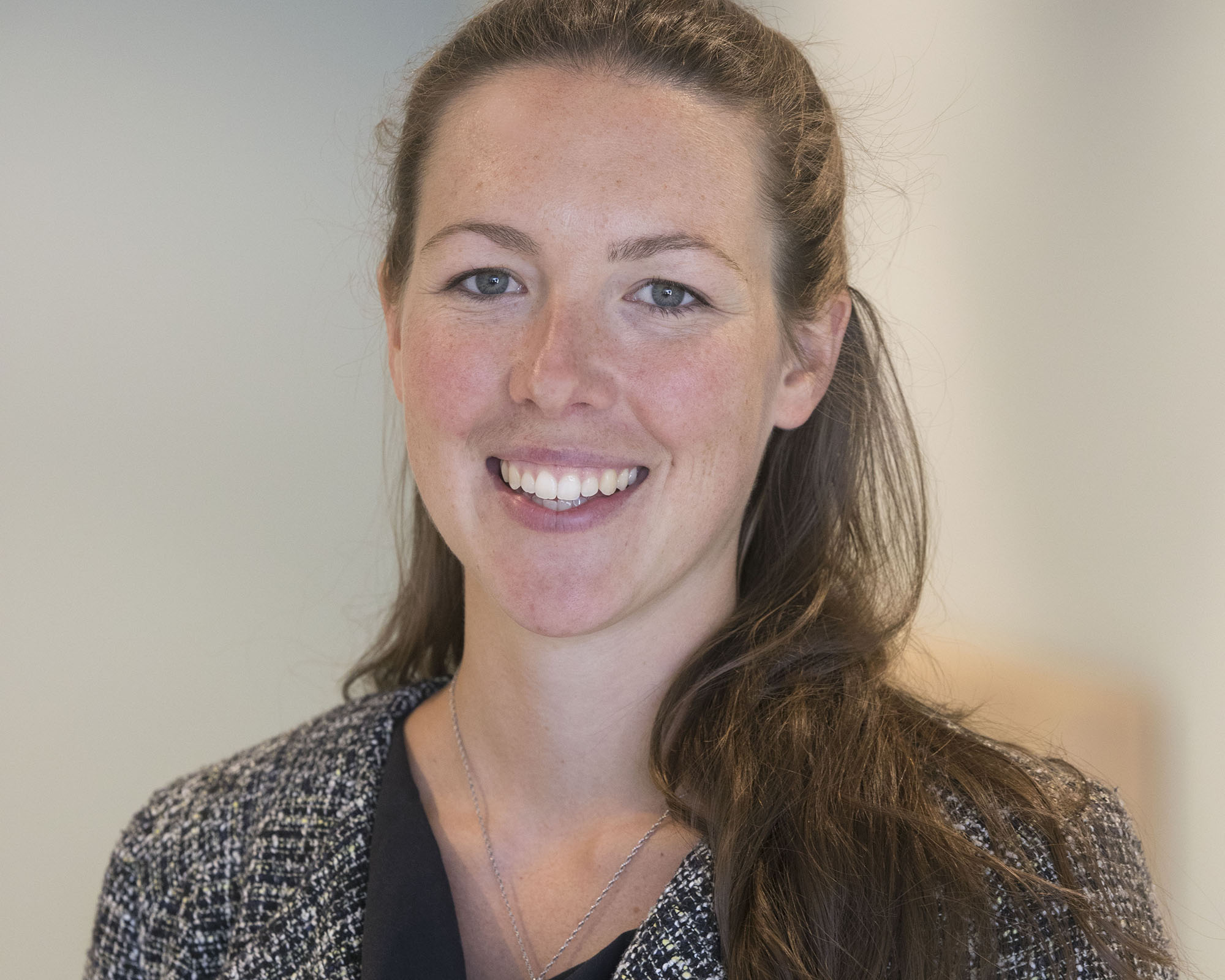Student award for ‘Gewoon Vega’

‘Gewoon Vega’ started as a group project as part of the interdisciplinary course Biology & Communication. Natalie van Dis and Maaike de Leeuw, both students of Evolutionary Biology, joined forces with Tiemen Wagenvoort (Psychology), Mardie Vermunt (Science Education and Communication), and Julia Ertl (Social and Health Psychology) to try to find a way to make UU students and employees eat less meat.
In collaboration with the university’s Green Office and caterer Sodexo, the students conducted a trial in a canteen at the Drift, in which they persuaded visitors to choose vegetarian products. Meatless sandwiches were given more prominent place, and were presented in a more attractive way. The group’s thorough research proved these ‘nudging’ techniques were successful.
The jury said the students encourage the academic community to consume more sustainably. The past year, there have been several initiatives within the UU that aimed to make the UU community eat less meat. The standard lunch that’s generally served at staff meetings, for example, is now vegetarian.
Gewoon Vega was a one-time project, but might be given a longer lifespan after all. The Utrecht-based KF Hein Foundation, which is celebrating its 80th anniversary this year, announced they want to meet with the winners to discuss ways to strengthen and expand the initiative.
The other nonimees for the student award for Exceptional Extracurricular Achievements were psychology student Robin Kok, and the student initiative Advident.
Robin Kok has cystic fibrosis, and made herself heard last year when the minister threatened to stop covering the costs of the expensive medication she needs to stay alive. Advident lets science students work on real projects from companies and organisations, and helps teachers weave together work-related skills and education.
Thesis award for research on sustainable world
The award for the Best Master’s Thesis was won by Elizabeth Dirth (see below), who started work as a junior researcher at Utrecht’s Copernicus Institute for Sustainable Development after graduating. Her thesis focused on the problem that necessary measures to combat climate change are not implemented fast enough, or at all, because people find it hard to imagine the actual consequences that threaten. It’s a situation that can harm the next generations. Dirth studied how a concept of ‘equality between generations’ can be used to remove that injustice. She had earlier received a Bright Minds Award from her faculty for her achievements.
The other two nominated theses came from Chris van Hoorn, student of Molecular & Cellular Life Sciences, who studied cilia in the human body that are important for our ability to see and hear; and from Idya Karimi, Law student, who studied the calculation of personal injury payouts for children.
The UU uses the two student awards each year to shine a light on exceptional students. The winners receive a plaque and 1500 euros. This year, there had only been six recommendations for the Exceptional Extracurricular Achievements award. The Best Master’s Thesis did better: 26 students were recommended for a nomination.
